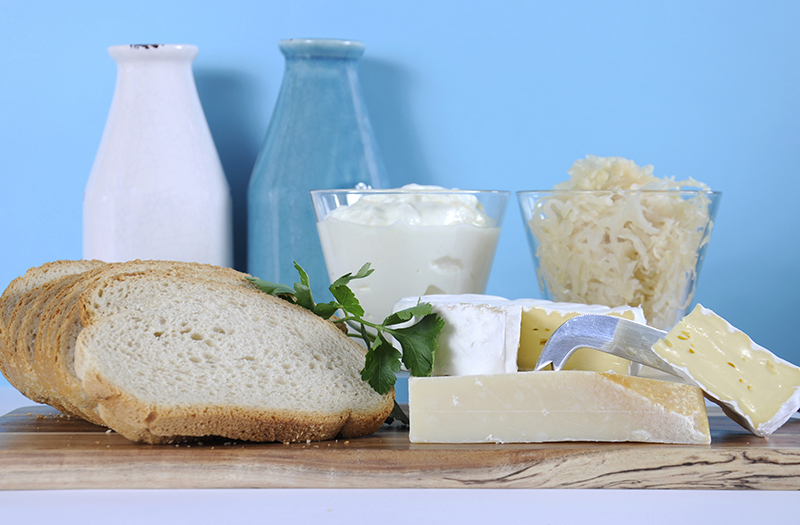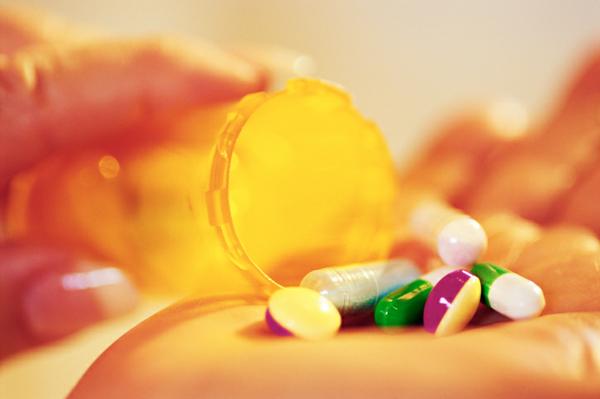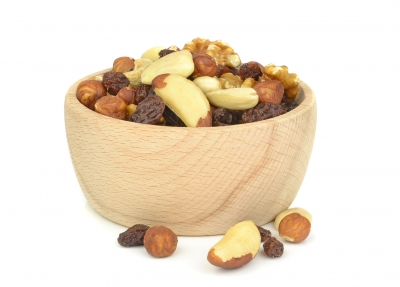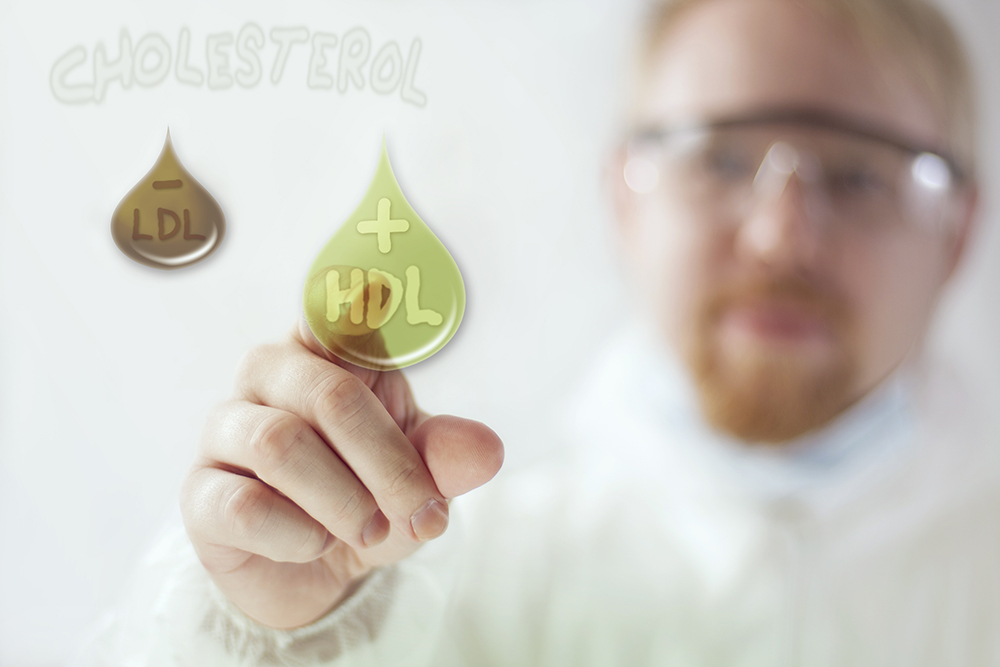Using Probiotics for Cholesterol Lowering
 High cholesterol levels increase heart disease risk. There are dietary and lifestyle changes you can make to lower cholesterol levels.
High cholesterol levels increase heart disease risk. There are dietary and lifestyle changes you can make to lower cholesterol levels.
A growing number of studies indicate probiotics have the potential to improve cholesterol levels.
What are probiotics?
Probiotics are good bacteria that promote overall health, especially for the digestive systems. Many probiotic supplements contain the same or very similar bacteria to what is already located within the body but may be out of balance with “bad” bacteria due to various health conditions.
How do probiotics lower cholesterol?
5 Effective Ways To De-Stress And Lowers Risk Of Heart Attack & Stroke

Guest post provided by resident counselor Lisa Walters.
Are you always stressed due workload at home and in your job? Do you feel a sting in your chest every time you are so much stressed? It’s high time that you learn how to de-stress before your heart suffers.
Studies have shown that stress increases your risk of heart attack and stroke by triggering the activity of the amygdala (fear center of the brain). It results to arterial inflammation, which can cause heart attacks. People who are highly stressed are prone to higher disease-causing white blood cells and an increase level of norepinephrine that can initiate heart attack.
Earlier, stress was only a biological response to life-threatening incidents. However, the modern days have made people produce the same biological reaction, even in simple daily activities. People are stressed on the road because of traffic, work presentation and even solving simple life’s issues.
Stress could lead to serious health problems if you will not learn how to manage it. Chronic stress can lead to high blood pressure, heart attack and excess weight.
Try these simple techniques that can help you de-stress before you become susceptible to stroke and heart attack:
1. Detach.
There’s a limitation for everything. You cannot walk out from stress without giving a pause to what’s causing it. Is it your demanding relationship, work, home, or family issues? Once in a while, detach from the actual scene and take time to breathe. If you cannot change the situation or the person, don’t you think it’s time to give up? If you have tried to fix the issue many times, but nothing worked it’s time to give yourself a break. Don’t stress yourself, you deserve to be happy than to face everyday problems.
2. Meditate.
Meditation has been used since the ancient times as a powerful tool to relax the body and mind. Focusing on your thoughts and breathing can lessen your risk of heart problems. You can also pray and do yoga to calm your mind and emotions.
What is the best time to take blood pressure medication?
 According to the Centers for Disease Control and Prevention, 75 million Americans have high blood pressure (32% of Americans).
According to the Centers for Disease Control and Prevention, 75 million Americans have high blood pressure (32% of Americans).
Antihypertensive medication is a commonly prescribed treatment plan to control high blood pressure. There are many blood pressure medication types and each works in a different way to lower blood pressure.
Approximately 50% of patients do not take their medications as prescribed, which reduces treatment effectiveness. It is important to take your blood pressure medication exactly as it is prescribed.
Over the years, research has investigated the effect of taking blood pressure medication in the morning versus before bed.
Selenium and Heart Disease: Should you supplement selenium?
 Selenium is a trace mineral found in soil and naturally present in many foods.
Selenium is a trace mineral found in soil and naturally present in many foods.
The recommended dietary allowance for selenium is the same for men and women at 55 micrograms daily for anyone 14 years of age or older.
Selenium plays a critical role in reproduction, metabolism, DNA synthesis, infection, and protection from oxidative damage.
Selenium and Heart Disease
A component of selenium works to prevent the oxidation of cholesterol particles, decrease inflammation, and prevent platelet aggregation.
This function of selenium led researchers to investigate whether or not selenium supplementation can be used to reduce cardiovascular disease.
Research resulted in conflicting results. Some research found people with lower selenium levels to have a higher risk of heart disease. Other research found there to be no connection and some even indicated high selenium levels were associated with an increased heart disease risk.
Are there really benefits associated with very low LDL cholesterol levels?
 Cholesterol is not all bad.
Cholesterol is not all bad.
Cholesterol is a type of fat which plays an important function in every cell wall. Cholesterol is used by the body to make other substances, such as hormones, which are essential to our health and well-being.
While cholesterol is found in some foods, the body also produces needed cholesterol in the liver.
Low-density-lipoprotein (LDL) cholesterol carries cholesterol from the liver to cells.
High-density-lipoprotein (HDL) returns “extra” cholesterol in circulation to the liver.
Diet and lifestyle choices, as well as health conditions, can cause the cholesterol balance gets skewed and heart disease risk rises when LDL levels become too high and/or HDL levels drop too low.
This is where many patients are prescribed statin medications to lower LDL cholesterol levels back to a healthy range, reducing heart disease risk.
No connection between very low LDL cholesterol levels and mortality?
There was a publication not too long ago claiming no association to be found between LDL cholesterol and mortality.
This was a review of 19 studies with over 68,000 participants finding no evidence between LDL cholesterol and mortality.
I was interested to see this because it seems like we are taking it too far in our efforts to lower LDL cholesterol to lower and lower levels. Cholesterol does have a relevant role in health.
9 Quick Fixes to Boost Your Fruit and Veggie Intake
 Here are nine easy ways to ensure you eat the recommended five to nine servings of fruits and vegetables every day.
Here are nine easy ways to ensure you eat the recommended five to nine servings of fruits and vegetables every day.
1. Eat on the go.
An apple, orange, banana, and pear are all portable fruits you can eat on the go without advance prep. Fruits provide vitamin C, a powerful antioxidant enhancing the body’s response to free radicals and protecting the arteries from oxidative damage.
2. Salads.
Shop the produce shelf for ready-made salads. Select dark green, leafy lettuce varieties, such as romaine, endive, and spinach.
3. Pizza.
Top your pizza with extra chunks of tomatoes, onions, bell peppers, spinach leaves, and pineapple. Tomatoes are rich in nutrients that directly impact heart health, including potassium, niacin, vitamin B6, and folate
4. Breakfast.
Use strawberries, bananas, blueberries and other fruits to pancakes, waffles, and toast. Colorful berries are a rich source of polyphenols and antioxidants.
5. Vegetable snacks.
Snack on raw baby carrots, pepper slices, cauliflower, broccoli, and celery. Cardiac physician Mark Houston recommends consuming 4 stalks of celery daily.
6. Fruit snacks.
Keep one-serving size bags of dried fruit in your car or desk for a convenient and still healthy snack. A 1/4 equal one-serving of dried fruit.
7. Pasta and omelets.
Mix in frozen or fresh vegetables with your pasta and omelets. Canned vegetables are high in sodium, while frozen or fresh vegetables usually have no added sodium.
8. Soup and sauces.
Boost nutritional value of soups and sauces by adding a kidney beans, green beans, corn, or peas. Beans provide both soluble and insoluble fiber to promote healthy cholesterol levels.
9. Smoothies.
Enjoy a healthy, refreshing smoothie made with frozen fruit, yogurt, and ice. Add a tablespoon of ground flaxseed to boost omega 3’s.
Remember… your goal is to consume 5 to 9 servings of fruits and vegetables EVERY DAY.



